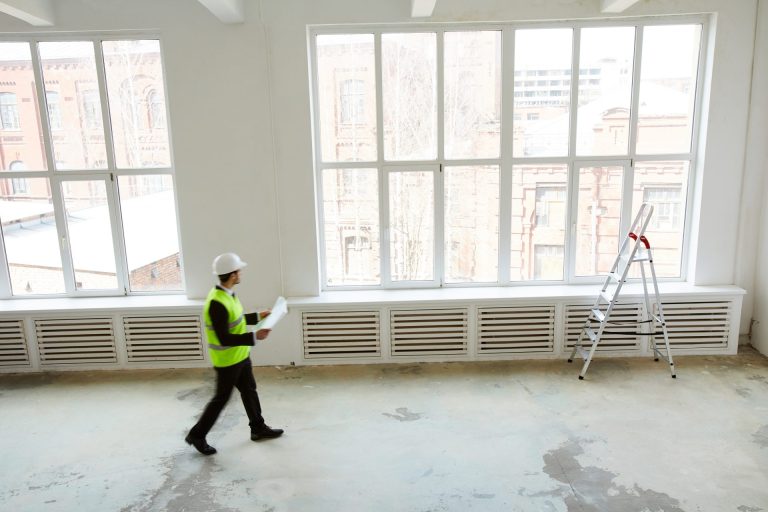This is an article I have been meaning to write for a while.
I’ve seen numerous building reports in my 15-plus years in the industry and especially more in recent years as “vendor supplied (agent)” reports are becoming the norm. Many, in my opinion, are sub-standard, misleading and shouldn’t be relied upon. The fact that many are provided in webbooks with the contract of sale and other relevant information that is relied upon by buyers when purchasing further emphasises my opinion.
Greater care and regulation should be placed on the selection of inspectors providing these reports and their accountability of what they are putting forward. I believe there is a great benefit, especially in an auction scenario where multiple parties may require an inspection and for a vendor it means they can market a property knowing what faults or flaws it may have.
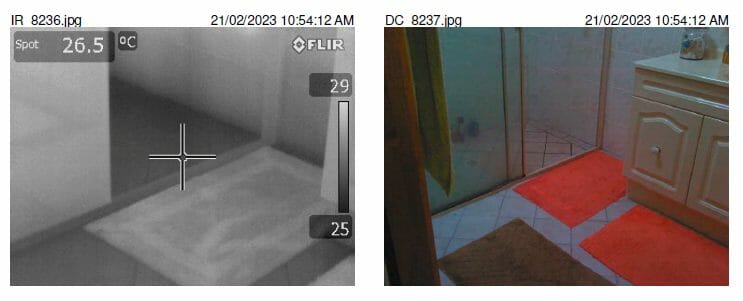
Better Regulation is Needed
In the ACT it is a requirement of the vendor to provide such a report with the definitions of the requirements of what needs to be in those reports quite clear and the Inspectors must be qualified and insured. The main issue I am finding with vendor or agent supplied is either a lack of detail, brushing over the severity of defects or missing them altogether.
Don’t get me wrong, I am not a qualified building consultant nor a tradesperson but I have seen some pretty significant oversights missed by inspectors that quite frankly mispresent or mislead potential purchasers of the severity of those defects and therefore the overall condition of the property. This could mean one buyer might be aware of significant defects while the other is oblivious. The other issue is that buyers are “encouraged” to move ahead confidently (unconditionally) or subject to only finance.
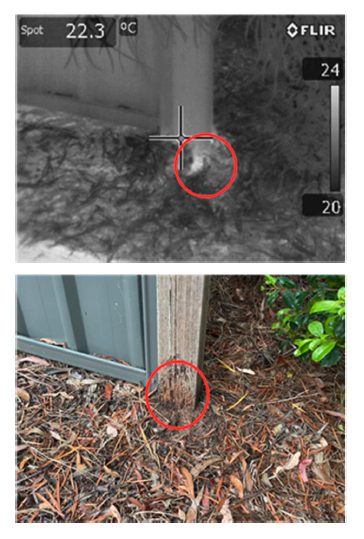
Pic – Hunter Building Inspections
Pressure to Accept Sub-Standard Reports
While the market has cooled, it’s still putting pressure on buyers to accept the supplied report and denying them the opportunity to have their own independent investigations done. I’ve seen “reports” that are barely an A4 page of defects with the rest being made of disclaimers. I’ve seen questionable pool inspection reports where compliance has been granted when I’ve seen other properties with the same features deemed non-compliant by other inspectors. I’ve seen a report not comment on the flooring because of paint drop-sheets (couldn’t understand why the inspector even bothered). I’ve seen a number of times past termite damage not even mentioned. The list goes on and on.
While no single inspector is perfect or can miss something, at least have had two sets of eyes on the property can sometimes pick up something that could have been missed. In some cases, this could be thousands, if not tens of thousands of dollars in remediation costs. For the purchaser, this may have changed their decision to proceed to purchase the property altogether. What irritates me further is when my clients obtain their own reports and there are gaps in the defects identified in our report and a supplied report.
This means my clients have more knowledge, and therefore understand the true value and risk they are taking compared to another buyer that is relying solely on a supplied report. Sure even another set of eyes may still miss something too however major defects are pretty well defined in the building code and it’s the inspector’s duty to disclose them.
Images from an “Above Average House” in Good Condition
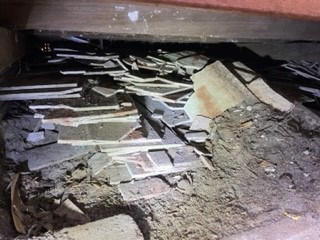
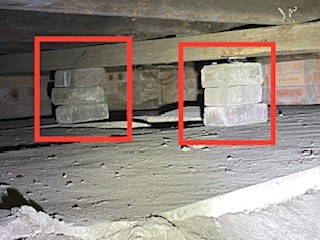
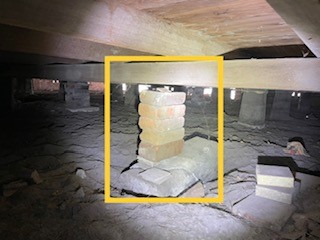
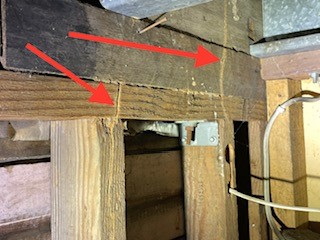
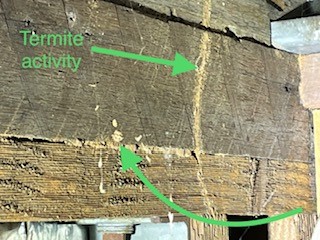
These were the most serious items from our independent report on an auction property whereby the agent/vendor supplied report described the house as “Above Average” and its Overall Condition as “Good”.
In their definitions Above Average – the overall condition is above that consistent with dwellings of approximately the same age and construction. Most items are well maintained and show a good standard of workmanship when compared with buildings of a similar age and construction. Good – the item or area inspected appears to be in serviceable and/or sound condition without any significant visible defects at the time of the inspection.
Our report was extensive and it barely scraped through with an “average” condition assessment. It was alarming to note the lack of termite damage in the first floor (the newer part) being mentioned in the supplied report. Along with the minimisation of the serious/major defect of numerous re-peiring needed under the rear extension. This meant that our client was aware of over $50,000 of major defects (not too mention the termite damage) that the other buyer was not.
How do you avoid getting caught by a dodgy inspection report?
When examining a supplied report, please seek independent legal advice as to what protections you may have if you do rely upon it to decide to purchase the property. The key terminology that we are looking for when we are provided with a building report is if it has been done to an Australian Standard 4349.1. Check to see if they are insured and do a Google Search to see what reviews exist about them. I have a couple on my website that I have used regularly but can recommend a few others that I have worked with over the years and found them incredibly thorough professionals.
A detailed report should include colour photos, and a detailed explanation of each room (not just – “in good order for its age”) and be more than 10 pages long (I’ve seen some much less than this). Even newer properties still have defects and especially should not be overlooked for a thorough inspection. I’ve heard of a report on a new house that has overlooked checking drains for debris for the occupants to have overflowing drains after their first shower.
This guy was featured on A Current Affair recently with his TikTok videos showing his experiences with new construction in Victoria and I’ve seen similar with some local inspectors also. I also advise obtaining a thermal inspection as part of the building and pest inspection as it can highlight many hidden defects or confirm leaks or termite activity. In another article, I cover the benefits of electrical inspections in detail.
Check to see if they are members of the Australian Society of Building Consultants, this is an independent association that is made up of building consultant professionals dedicated to ensuring professionalism and education for their members which ultimately benefits the consumer. If you are going to rely upon a building report supplied by the agent or the vendor because there isn’t time to get your own, ask if the inspector can put the report in your name. This is a tactic sold by some agents to reassure buyers when relying upon it but in my experience, I strongly advise seeking an independent building and pest inspection report of your own. Especially when looking to spend hundreds of thousands, if not millions of dollars on a property, otherwise risk ending up with tens of thousands of remediation. I highly recommend Hunter Building Inspections as Michael as over 20 years of experience as an inspector and expert witness. Finally, always seek independent legal advice when buying a property.


